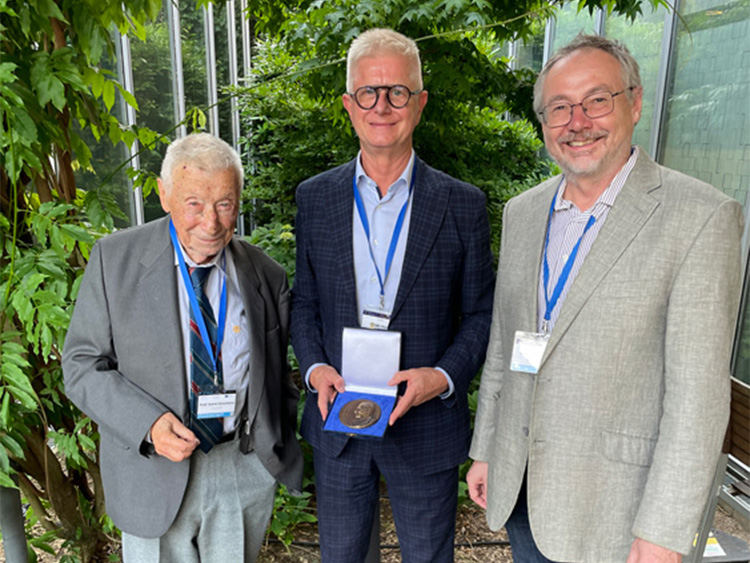27th Wilhelm Bernhard Workshop on the Cell Nucleus (WBW 2023) took place in Milan Hašek Auditorium at IMG from Monday 19 June to Friday 23 June 2023.
At the Opening Ceremony on Monday, the leader of Laboratory of Biology of the Cell Nucleus, IMG, Prof. Pavel Hozak was awarded the Wilhelm Bernhard Medal, which is a prestigious award given every two years, acknowledging outstanding results, progress and development to the field of Cell Nucleus research. The recipient is selected from the proposed candidates by a vote of the Wilhelm Bernhard Workshop International Committee consisting of scientists from 16 countries.

“Prof. Hozak has in many ways been an innovator in his studies on the cell nucleus which harbours our genes. His studies are important, because they explain some of the basic principles of gene regulation and dysregulation in diseases“, says Dr. Vassetzky member of the Committee, who introduced him to be this year’s medal recipient.
Young Researcher Award 2023
Dr. Hana Hanzlíková, another researcher from the IMG, this time head of the Department of Genome Dynamics, was awarded the Young Scientist Award for her contribution to the study of DNA damage response (DDR) and RNA molecular biology.
Brief History of the Wilhelm Bernhard Workshop series
The East-West split caused largely by the Iron Curtain was the initial impulse for Wilhelm Bernhard and the other founding researchers to come up with the idea of a multinational, multidisciplinary meeting. The very first meeting dates back to 1969 and was held in Liblice, Czechoslovakia, among others with the participation of Prof. Karel Smetana, senior, who has memorably passed the Wilhelm Bernhard Medal to Prof. Hozak this week in Prague.
The WBW meetings aim to represent various research approaches most used in studies on the cell nucleus structure, functions and their relationships and has since been held at a diversity of sites, every time with international participation.
In the long term, the WBW hopes to improve scientific knowledge in the respective research areas and contribute to our understanding of genome functioning, cancer development, diagnostics and cure, and most importantly support Young researchers in terms of funds as well as visibility to be able to present their research results to a wide international audience.